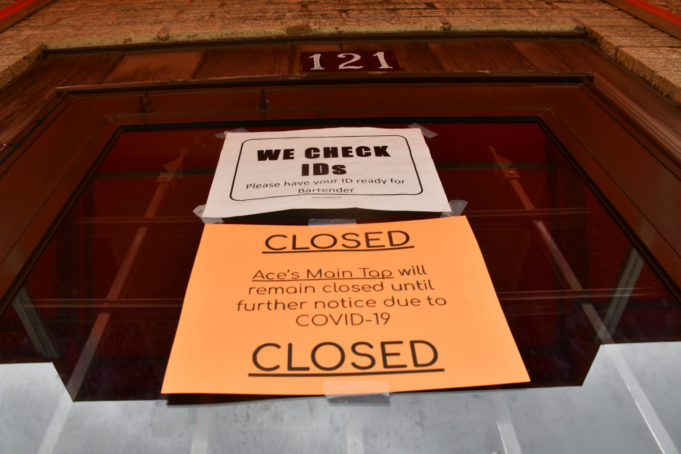Kenny Housc, owner of Anointed One, said on a normal Friday night his restaurant is full of people dining in and ordering authentic soul food.
“And now it is nothing,” he said.
As the safer at home mandate from Governor Tony Evers was enacted on Tuesday, March 24, businesses are finding alternative ways to bring their products to customers. Restaurants, like Anointed One, are offering delivery and carryout. JustVeggiez, a vegan catering businesses, is working towards bring the products to grocery stories like Fresh Madison Market.
Even with the alternative options, Housc said, the customers are still skeptical, noting at least a 50% loss in food orders.
“They look at it on TV and people telling them how serious it is and a lot of people are not taking it seriously and I guess that scares people. A lot of people rather sit at home and bring their food to them,” Housc said.
Housc suggested customers are afraid of getting the virus through contact with employees and from the carryout orders themselves.
The Federal Food and Drug Administration said at this time people cannot contract COVID-19 through food.
“The U.S. food supply remains safe for both people and animals. There is no evidence of human or animal food or food packaging being associated with transmission of the coronavirus that causes COVID-19,” according to the FDA website.
Camille Carter, director of the Black Chamber of Commerce, said that not only are people fearful of contracting the virus but they also do not want to spend money.
“Our restaurants are typically the first to be impacted by something to this scale. It certainly directs the disposable consumer income and it becomes very clear to the average consumer that going out is no longer a need. And we are now under a need only mentality. Having to have our children at home and not being able to work. Folks are not taking those extra steps not as a financial standpoint but not being able to contract the virus either,” Carter said.
James Bloodsaw, owner of JustVeggiez, said the summer is usually his busy time of year as he takes his catering businesses to different festivals around the midwest.
“In March I would have been in Indiana, Chicago and Milwaukee. In April I was going be in Milwaukee and Michigan. And they all got canceled,” Bloodsaw said.
Bloodsaw, who does not have a brick and mortar location, is still able to cook because the rented commercial kitchens are still open, including FEED Kitchen and Christine’s Kitchen.
The two-year anniversary for his business was March 19, just five days before the Safe At Home order was enacted.
“The uncertainty — you are like hoping and praying by June and July when the festivals starting kicking out and you hope people start coming out because they’ve been inside so long but you just don’t know. That is the thing we don’t know,” Bloodsaw said.
Housc has owned Annointed One with his family for two years, also. His employees including a head chef, two servers, a bus boy and cleaning staff who will now all collect unemployment.
But Carter noted that it is not only restaurants that are affected by this order, other self service industries are as well.
“Even in terms of basic services,” Carter said. “Most of our businesses are highly service-oriented. Cleaning businesses, entrepreneurs that are going into homes — those open invitations have been cut off because they aren’t able to go in and clean.We are seeing across the board a very large slowing of their revenue stream.”
The Black Chamber hopes to be a resource for businesses during this uncertain time by providing alternative ways for businesses to get their merchandise to consumers which includes creative marketing campaigns, virtual shopping, shipping orders and delivery.
“Right now we are communicating with business directly. And finding out how to be resourceful ourselves. We are learning as we go and we are currently looking at ways to do some cross promotion,” Camile said. “We are looking at short term lending options are available for businesses. Our businesses continue to concur costs even as their businesses are closed, or have slowed down substantially.”










